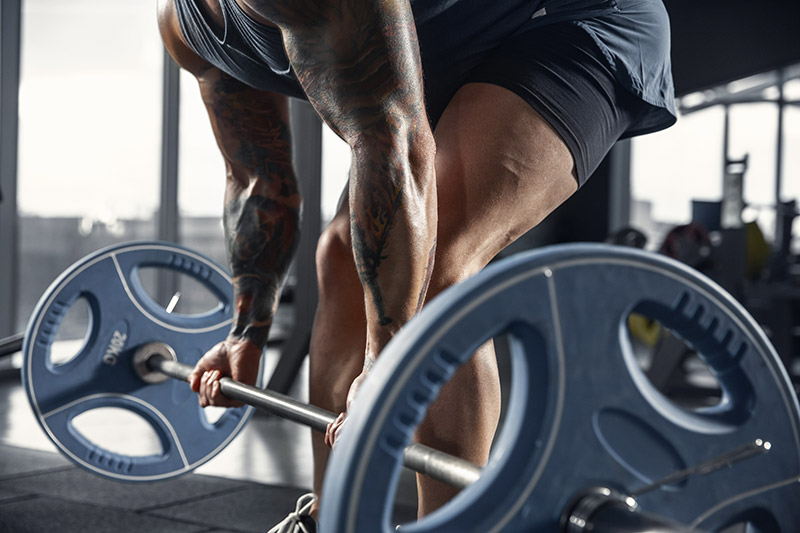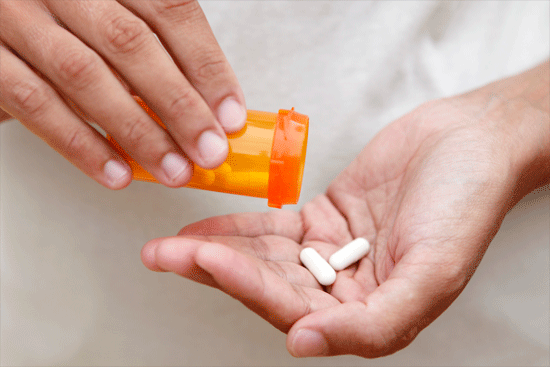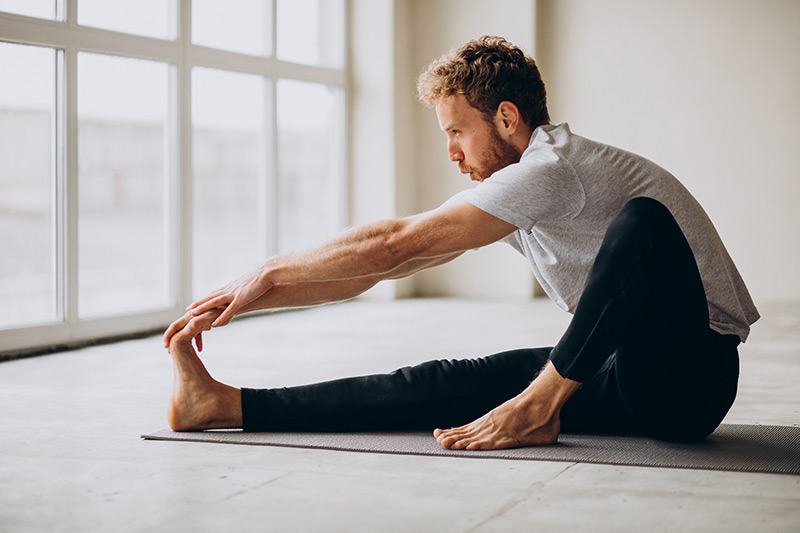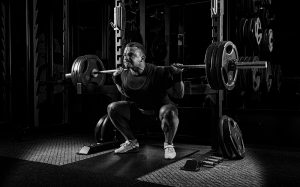Imagine you’ve just had a great gym sesh, you pumped tons of iron, and you’re on your way to smashing your goals. But then you ruin it by eating the wrong food or staying up all night and getting a poor night’s sleep.
Did you know what you do after your workout is almost as important as what you do during your training? It helps you get your best results, boosts muscle gain and weight loss, and reduces muscle soreness. Plus, a good post-workout routine allows you to maintain your energy levels.
So, if you’re looking to boost your post-workout routine and maximize your results, then read on for our top tips on what to do after your workout.
How long does muscle recovery take after a workout?

It will take different people, different lengths of time to recover from a workout. It will all come down to fitness levels, the intensity of your workout, plus how long you worked out. Light activity might leave you a bit sore for 24 hours, whereas a challenging workout might take 2-3 days for your muscles to recover.
But did you know that other factors can impact your recovery? These include:
- your quality of sleep
- your nutrition
- any stress in your life
- how intense your workout is across different muscle groups or if you’re near your max limit
Why is recovery time necessary?
When you exercise, you’re creating lots of tiny tears in your muscles and essentially damaging your muscles. It’s only during recovery that allows your muscles heal and come back stronger. If you don’t give your muscles time to recover, this is where the risk of injury comes in.
An accumulation of tears without rest and recovery puts you at risk of developing torn or pulled muscles. Injuries like muscle strain can range from uncomfortable up to ruptures that might need surgery.
How do you prevent injury?
The foundation of any good training program will include small increases in intensity over time. If you jump ahead too quickly, you risk injuring yourself. Although different trainers will have different philosophies, many agree that you should leave your workout session feeling challenged but not completely exhausted. Even world-class athletes are strategic about the times they train at peak intensity.
By designing your program so that you alternate your muscle groups in different workouts, you’ll be able to increase your recovery time and reduce injury risk.
Also Read: How to build muscle and burn fat with a body recomposition
For example, if you’re strength training three times a week, try scheduling your workout something like this to give each of your muscle groups some time to recover:
Monday
Back and biceps
Wednesday
Friday
Legs and core
Boosting your workout recovery: food
Protein
When you’re working out, the proteins that make up your muscle fibers become damaged—having protein after your workout gives your body the material it needs to repair the damage. According to recent research, 20-40g of protein is enough to maximize muscle growth and build your gains.
Interestingly, eating 20-40g of protein before your workout may also help to increase muscle protein synthesis.
Post-workout carbs
Your muscles store carbs in the form of glycogen for energy; during short and intense workouts, your muscles will use this glycogen as their primary form of energy. If you don’t replenish these stores, your muscles don’t have what they need to support recovery and growth.
Eat a balanced diet
By having a balanced diet, you’ll avoid developing any nutrient deficiencies that might impact your muscles’ ability to recover.
General rules:
- minimize your consumption of processed foods
- eat plenty of fruit and veg
- don’t avoid carbs
- eat at least 1.4-1.8g of protein per kilogram of body weight
Boosting your workout recovery: drinks

Stay hydrated
Dehydration can mess with your muscles’ ability to repair and recover. If you exercise in humid or hot weather, you’re much more likely to become dehydrated.
Tart cherry juice
Did you know that some early research has found that drinking tart cherry juice after exercise might reduce inflammation, muscle damage and soreness? It’s still early days for the studies, but early studies are looking promising.
Boosting your workout recovery: supplements

Creatine
Widely studied, research on creatine has shown that it can help to improve muscular strength when resistance training. Plus, creatine might help athletes recover from intense exercise by helping to reduce muscle damage and inflammation and helping to replenish your glycogen stores.
Protein powder
As we’ve discussed, protein before or after a workout can work wonders at restoring your muscles’ glycogen stores, and protein powder is a convenient way to add more protein into your diet. Many contain a spectrum of essential amino acids, but whey and collagen powders are two of the most popular choices.
Natural steroids and SARMs
When not prescribed by a doctor, steroids have a lot of nasty side effects, from hair loss and heart damage to impacting your junk.
Also Read: How to build muscle
But natural steroids and SARMs alternatives can give you the boost your T levels need, optimizing your workout and recovery without any of the side effects.
Boosting your workout recovery: lifestyle

Sleep
It sounds straightforward, but sleep gives your muscles time to recover. If you’re regularly exercising intensely, you need more rest than the average person. In fact, some professional athletes boast 10+ hours of sleep a night. Sleep deprivation might get in the way of your recovery by impairing your body’s natural inflammation reaction, which stops the production of hormones that aid muscle growth.
Massage
Sports massages can be crucial to reducing muscle soreness, and many athletes incorporate massages into their training. Research has shown a small but significant impact on flexibility and decreases delayed onset muscle soreness.
Compression garments
Over the past few decades, it has become increasingly common to see athletes in compression garments. Although there are limited studies for their effectiveness, a 2019 study found they lowered the time needed for muscle recovery in German handball players.
What to avoid in your recovery routine?
It’s essential to find the balance, fuel your body with a balanced diet, and not deprive yourself but also stay away from overeating or getting too many calories from processed foods.
Generally, being healthy will help you make those gains, so cut out alcohol and tobacco where possible. And resist the urge to overexert yourself and pushing too hard. If you push too hard or past the level you’re at, you can cause injuries, nausea or even restrict your breathing and cause dizziness or light-headedness.
Popular safe and legal steroid alternatives
Top tips for sore muscles

Stretch
Make sure to include a stretching routine after your workout whilst your muscles are still warm. This will help you to elongate your muscles, relieve tension and boost your flexibility. Stretching also helps prevent any muscle soreness and tension and will increase your range of motion, which helps build better form and posture. As well as improving mobility and muscle relaxation.
Jump in a cool/cold shower
It might not be your favorite thing to do when you’re aching, but taking a cool or cold shower can encourage healing, prevent inflammation and ease any tension in your muscles. You could even try out an ice bath which might help relieve any muscle soreness or inflammation. Plus, you might find it increases your chances of a night of good sleep and rest.
Home remedies
There are loads of options you can try at home to prevent or aid sore muscles, like having an Epsom salt bath, a sports massage or going over the muscle you’ve just worked out with a foam roller. If you’re tired, in pain or have any kind of injury, make sure you rest until you feel completely better.
When to talk to a trainer
If you’re struggling to optimize your workout or you’ve reached a plateau, it could be time to consider reaching out to a pro. You could also think about working with a trainer or a coach if you’re new to fitness or have any underlying health conditions or injuries.
As well as accountability, a fitness trainer can create an individual program that’s been entirely tailored to your needs and goals. Plus, they can support your post-workout routine.
As you make gains and reach milestones, your trainer can take your progress into account and adjust your plan to push you through plateaus and smash through any struggles.
Also Read: Should you eat protein before bed to build muscle?
If diet is where you struggle, a dietician can work with you to assess your individual needs, and they’ll do this by looking at your current diet, workout plan, and goals. From this, they can design an eating plan that optimizes your input and complements your fitness program and any health or dietary concerns.
Ready to optimize your post-workout?

Ultimately, you need to utilize the recovery process after your workout to gain the most benefits and give your muscles a chance to rest and heal. A post-workout recovery routine should allow you to restore your energy levels and rebuild your muscles stronger safely. Without it, you’re putting yourself at risk of injury.
Whether you’re training to get fitter or you’re an athlete, if you’ve felt like you’ve plateaued or your muscles feel constantly inflamed and sore, this is your body saying that you need to give yourself more time to recover after a workout.
If you’d like to boost your workout efforts, gain muscle, and reduce your recovery time, then our range of natural steroids and SARMs alternatives could help you reach your goals faster with ZERO side effects.
















